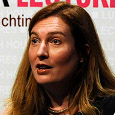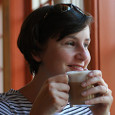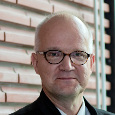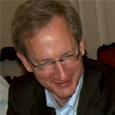The Digital Humanist: Open Resources, Shared Standards, Virtual Communities
Rees Davies room, History Faculty, Oxford, Mondays, 5.15pm.
Podcasts now available!
Monday 20 October 2014
Professor Melissa Terras is Director of the UCL Centre for Digital Humanities and Professor of Digital Humanities in the Department of Information Studies at UCL.

Transcribe Bentham: Sharing Labour, Sharing Platforms, Sharing Data
The Transcribe Bentham project is an award winning, innovative, ambitious, open-source, participatory online environment that has tested the suitability of crowdsourcing for document transcription of cultural and heritage material. Although twenty volumes of the English jurist, philosopher, and legal and social reformer Jeremy Bentham’s (1748-1832) correspondence have been published so far by the Bentham Project, UCL Library Services holds 60,000 untranscribed folios. Transcribe Bentham has tested the feasibility of outsourcing the work of manuscript transcription to members of the public, aiming to digitise Bentham folios, and, through a wiki-based interface, allowing transcribers access to images of unpublished manuscript images, in order to create an encoded transcript for checking by UCL experts and further publication online. This paper presents results, themes and issues which have emerged from this successful initiative, which recently saw the 10,000th Bentham transcribed by volunteer – or “volunpeer” – labour.
Monday 27 October 2014
Kathryn Eccles is a Research Fellow at the Oxford Internet Institute and Digital Humanities Champion at the History Faculty

Looking into the Crowd: Understanding the Users of Digital Heritage Collections
Crowdsourcing and community engagement efforts surrounding digital heritage collections have been heralded as providing new and intricate forms of knowledge exchange, but how much do we really know about users of digital heritage collections, and how can we best understand the impacts of these resources on users? In this talk, Kathryn will present insights from the Oxford Internet Institute’s work on understanding the usage and impact of digitised scholarly resources, which began with a JISC-funded project in 2008 and has since been extended to capture the impacts of crowdsourcing on virtual volunteers.
Monday 10 November 2014
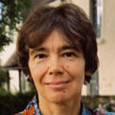
Sally Shuttleworth is Professor of English Literature at the University of Oxford.
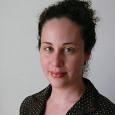
Victoria Van Hyning is the Digital Humanities Postdoctoral Fellow at Zooniverse

Constructing Scientific Communities in the 19th and 21st Centuries: Science Periodicals and the Zooniverse
This seminar will offer an introduction to some of the issues being explored in ‘Constructing Scientific Communities: Citizen Science in the 19th and 21st Centuries’, one of the large projects funded by the AHRC under the Science in Culture theme. The project brings together historical and literary research in the nineteenth century with contemporary scientific practice, looking at the ways in which patterns of popular communication and engagement in nineteenth-century science can offer models for current practice. It focuses, in particular on the role of the nineteenth-century science journal, in all its multiplicity, and digitally based forms of citizen science in our own era, as exemplified by Zooniverse.org. Professor Sally Shuttleworth will introduce the project as a whole, and Dr Victoria Van Hyning will give an overview of Zooniverse and demonstrate how crowdsourcing data facilitates both scientific and humanities research. Together they will discuss the new ‘citizen science’ projects that have been selected for development by the Constructing Scientific Communities group and explain how these tie in with the particular research aims of the project.
Monday 17 November 2014
Eero Hyvönen is Professor of Semantic Media Technology and Director of the Semantic Computing Research Group at Aalto University

Harmonising the Heterogeneous: Shared Ontologies and Linked Data in Archives, Museums and Libraries
Cultural Heritage (meta)data is often heterogeneous, multilingual, distributed, semantically interlinked, and produced independently by organisations and individuals using different schemas, tools, and practices. As a result, a fundamental problem area in dealing with this kind of data is to make the content mutually interoperable, so that it can be searched, linked, and presented in a harmonized way across the boundaries of the datasets and data silos. Semantic Web and Linked Data standards and practices are a promising approach to address these issues. However, this is not enough: this paper will argue that we also need a content infrastructure, that is, the actual domain ontologies, metadata models, and data shared by the Cultural Heritage community, and web services that make their integration and use in existing Cultural Heritage systems easy and cost efficient. This talk will discuss the building of a national Linked Data content infrastructure in Finland, focusing on two public services: ONKI Ontology Library Service for publishing and using shared domain ontologies, and Linked Data Finland, a platform for publishing metadata schemas and linked datasets as services.
Monday 24 November 2014
Professor Howard Hotson is Director of Cultures of Knowledge, Fellow and Tutor in Modern History and Professor of Early Modern Intellectual History

Collaboration, Early Modern Letters Online, and Horizon 2020: The Creation of One Virtual Community to Reassemble Another
This concluding seminar will discuss prospects for the further development of the digital platform and union catalogue Early Modern Letters Online. From 2014 to 2018, a networking initiative entitled ‘Reassembling the Republic of Letters, 1500–1800‘ will fund a structured discussion with partners from over two dozen countries on all the issues involved in collaboratively developing a version of EMLO on a pan-European basis. This network is funded by European Cooperation in Science and Technology (COST), which as a whole is now being integrated into Horizon 2020, the new large-scale EU research funding scheme. One of H2020’s main foci is transnational digital infrastructure of precisely the kind which EMLO is piloting and the COST Action is proposing to refine. A third phase of Cultures of Knowledge funding from the Andrew W Mellon Foundation is currently under discussion, devoted to laying firm foundations for such larger-scale initiatives. The shared objective of all of these projects is to move beyond the collaborative population of a union catalogue to collaborative design, development, and funding of a pan-European version of EMLO on a component basis, all in the service of networking research, teaching, and outreach in this field. While the COST Action will pursue collaborative systems design on a large scale, CofK’s Phase III proposal will pilot collaborative systems development with selected partners, as well as continuing to expand EMLO’s active user community. The seminar will also provide an opportunity to showcase the progress made during Phase II (2013-14) in developing the core system and populating it with fresh data.
Seminars are open to all, from literature students to librarians, from historians to computer scientists – please do join us! They will take place in the Rees Davies Room of the University of Oxford’s History Faculty on George Street (click here for directions) at 5.15 pm. Everyone is invited to stay for wine and chat in the common room after the paper. If you have any queries do drop us a line at cofk@humanities.ox.ac.uk. Looking forward to seeing you there!
Image sources: Network visualization of correspondents in Early Modern Letters Online by Scott Weingart; Bentham transcription page, taken from: Causer, Tim, and Wallace, Valerie. ‘Building a volunteer community: results and findings from Transcribe Bentham‘, Digital Humanities Quarterly, vol. 6, no. 2, 2012: http://www.digitalhumanities.org/dhq/vol/6/2/000125/000125.html; ‘Crowd’ by Oona Hassim (2000), Central Saint Martins College of Arts and Design: http://www.bbc.co.uk/arts/yourpaintings/paintings/crowd-123473; Constructing Scientific Communities project homepage: http://conscicom.org; Stephan Alexander Würdtwein (1719-1796), Weihbischof von Worms und Historiker, in seinem Urkundenarchiv, 1770, by Georg Paul Nussbiegel (1713-1776) Webseite Uni Mainz: http://www.buchwissenschaft.uni-mainz.de/lehrende/wissenschaftliche_mitarbeiter/dr_f_s_pelgen_ma.html, via Wikimedia Commons.

